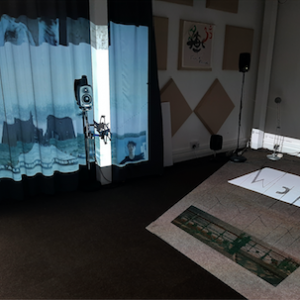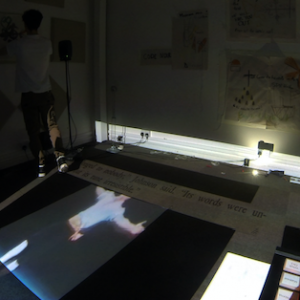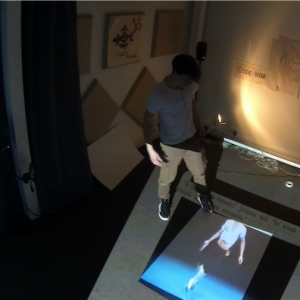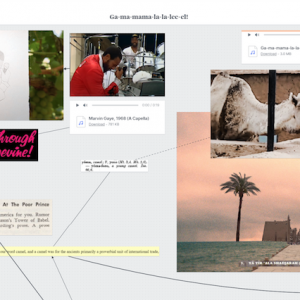“I love combining different techniques in order to achieve the most accurate expression of my concept. I have always gravitated towards sound and music and when I learned more about this course and its experimental and often multimedia approach I decided to give it a shot and it was totally worth it!”
Hi Andrea – please tell us about your work and your influences
“Manami is an interactive fashion brand concept, using upcycled garments and NFC technology that is attached to every unique piece. This concept began as a response to the superficiality and anonymity of the fashion industry. There is a growing consciousness regarding the impact of endless consumption of clothing on our planet. The fashion industry currently produces 10% of all humanity’s carbon emissions and is the second-largest consumer of the world’s water supply. (Insider, 2019) Treating clothes as an impersonal object results in a ‘collecting’ motivated mindset and automatically detaches the individual from their possessions. In order to reconnect the individual with the objects that surround them, I am creating an experience that carries a lot of personal and authentic elements, letting the viewer go further and think about those items differently.”
How have you found your course and time at Brighton?
“My time in Brighton was definitely very challenging due to lockdown and such unusual circumstances. However, I am very pleased with the experiences and the skills I have gained. Our tutors were very supportive throughout the entire year and I am very happy I have chosen to study here. I got a chance to expand my long-term project and truly learn the essential skills I needed. I had a lot of time and space to experiment and find the best way to form my ideas and bring them to life.”
How did you choose your course – why did you choose to study Digital Music and Sound Arts?
“My background is mainly New Media/Digital Arts. I love combining different techniques in order to achieve the most accurate expression of my concept. I have always gravitated towards sound and music and when I learned more about this course and its experimental and often multimedia approach I decided to give it a shot and it was totally worth it!”
What are your plans after graduation?
“Since my final project works as a prototype that is going to be further developed after my studies, I am aiming to establish an interactive fashion brand and build my career around that. I am very passionate about business as well so I find this to be the most suitable path for me.”
Take a look at a demonstration of the functionality, including sound pieces:








